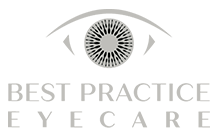Understanding the Impact of Systemic Diseases on Eye Health and Vision

Staying on top of your eye health means more than just squinting at the small print or getting those trendy reading glasses. It means understanding the correlation between the overall systemic health of your body and your eyes. The team at Best Practice Eyecare is dedicated to helping patients do exactly that.
A significant part of Dr Karpa’s practice focuses on monitoring and educating patients about the effects of autoimmune diseases on the eyes. Conditions like rheumatoid arthritis and lupus can cause inflammation in various parts of the eye, leading to problems ranging from dry eyes to cataracts, glaucoma, and even vision loss in severe cases.
A lesser-known fact is the effect of cardiovascular diseases on our eyes. Conditions such as atherosclerosis (hardening of the arteries) can lead to a condition called retinal vein occlusion. In such cases, the veins that drain blood from your retina get blocked, causing a sudden blurring or loss of vision. However, with early diagnosis and appropriate treatment, this vision loss can be mitigated.

In addition to regular eye examinations, it’s essential to maintain a healthy lifestyle to keep your eyes in top condition. This includes regular exercise, a balanced diet, quitting smoking, and limiting alcohol intake.
According to the National Eye Institute, a diet rich in dark leafy greens, fish high in omega-3 fatty acids, and fruits packed full of vitamins C and E can help promote eye health and slow down age-related vision issues.
However, no matter how health-conscious we are, some eye conditions may develop as we age. Age-related macular degeneration (AMD) is one such example. AMD is a common eye condition among people aged 50 and older and is a leading cause of vision loss
Additionally, AMD is a leading cause of vision loss among Australians over 50 years old. The Macular Disease Foundation Australia states that one in seven Australians over the age of 50 (approximately 1.29 million) have some evidence of AMD.
Consuming a diet rich in vitamins C and E, zinc, lutein, zeaxanthin, and omega-3 fatty acids can help slow the progression of AMD. The same principles can be found in AREDS (Age-Related Eye Disease Study) supplements, which are recommended for those at risk of developing advanced AMD.
Luckily, certain supplements can slow its progression. A notable recommendation from the Age-Related Eye Disease Study (AREDS) suggests that daily intake of certain high-dose vitamins and minerals can help slow the disease’s progression.
Diabetic retinopathy, in particular, is the most common cause of vision loss among people with diabetes and a leading cause of blindness among working-age adults. It is caused by damage to the blood vessels in the retina due to high blood sugar levels combined with hypertension and high cholesterol.

Though not all people with diabetes develop this condition, the longer someone has diabetes, the more likely they are to get it. This makes effective diabetes management and regular eye checks an absolute must for individuals living with this condition.
High blood pressure, or hypertension, can also cause damage to the blood vessels in the retina, leading to hypertensive retinopathy. The changes brought about by this condition can range from mild to severe and can eventually lead to vision loss if not addressed. Regular monitoring of blood pressure, taking your prescribed medication, and maintaining a heart-healthy lifestyle are essential steps in preventing this condition.
Like with diabetes, hypertension is another systemic condition with implications on eye health. The Australian Bureau of Statistics estimates that about 34% of Australian adults have hypertension or are on medication for the condition. Hypertension can lead to hypertensive retinopathy, a condition that damages the blood vessels in the retina, and often detected during routine eye exams.
According to the Australian Institute of Health and Welfare, it’s estimated that around 1.2 million Australians are diagnosed with diabetes, and this doesn’t account for the thousands who are yet to be diagnosed.
Diabetic retinopathy, an eye disease related to diabetes, affects over 15% of Australians with diabetes. This makes it one of the most common complications of diabetes, which underscores the need for regular eye exams and optimal control of blood pressure and cholesterol as well as blood sugar levels.
Dr Karpa of Best Practice Eyecare emphasises on the importance of early detection and treatment of these conditions to prevent or slow down the progression of vision loss. His approach to patient care, steeped in years of professional experience, is focused on educating patients about these risks and providing personalised care.
The prevalence of systemic diseases impacting eye health in Australia is significant, and it’s crucial to recognise the interconnectedness of general health and eye health. Regular eye exams with a trusted optometrist, balanced diet, and healthy lifestyle choices are fundamental to maintaining optimal vision health.
While these statistics may seem daunting, they serve as a reminder of the importance of eye health and the role that professionals like Dr Karpa play in preserving our vision.
Remember, eye health is a crucial part of overall well-being, so make it a priority and ensure you’re seeing your world in the best possible light.
Love your eyes. Get them checked.

Best Practice Eyecare Ophthalmologists
Based on the Sunshine Coast, we provide ophthalmologist, eye care and surgical services of the highest standard. We treat and manage a wide range of eye conditions including cataracts, glaucoma and macular degeneration and more.

